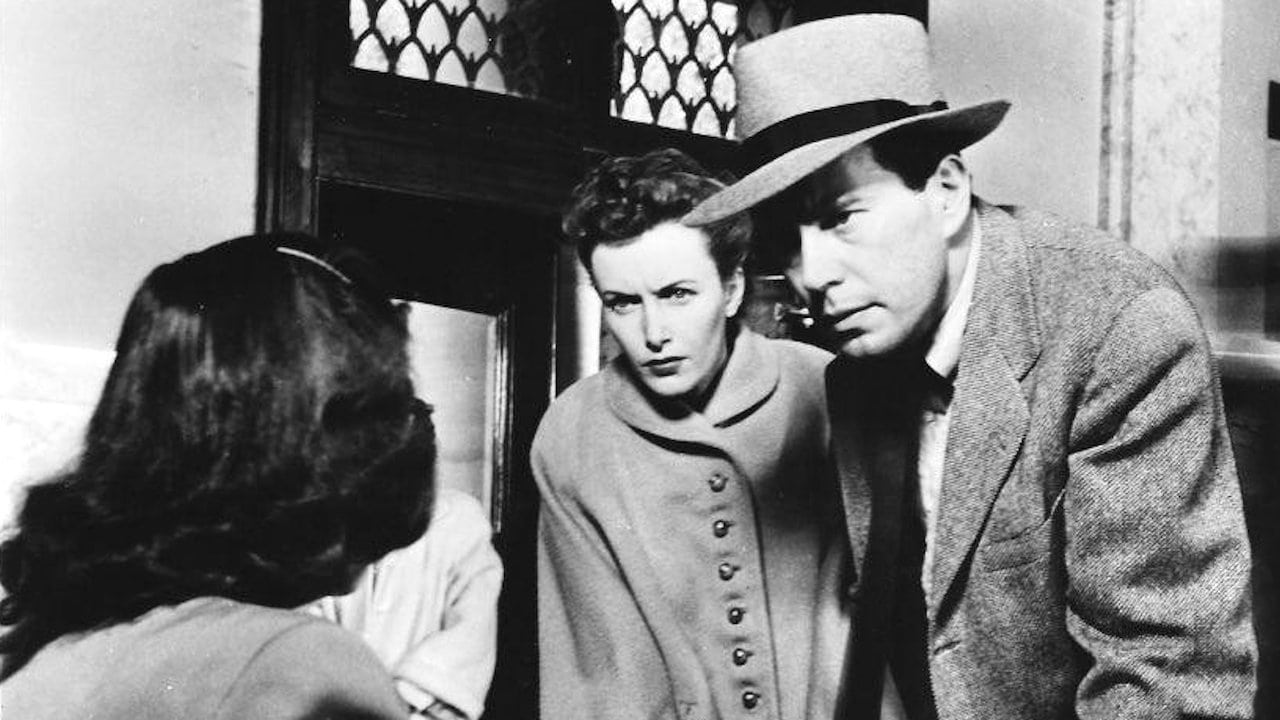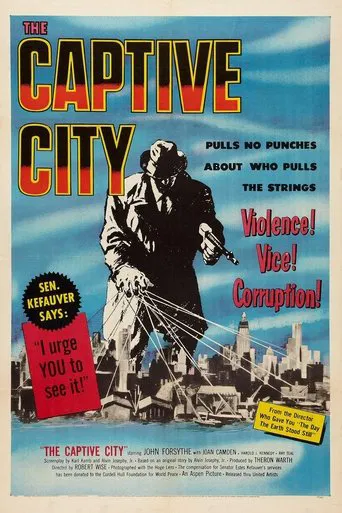Jeanskynebu
the audience applauded
Fairaher
The film makes a home in your brain and the only cure is to see it again.
Dirtylogy
It's funny, it's tense, it features two great performances from two actors and the director expertly creates a web of odd tension where you actually don't know what is happening for the majority of the run time.
Aubrey Hackett
While it is a pity that the story wasn't told with more visual finesse, this is trivial compared to our real-world problems. It takes a good movie to put that into perspective.
christopher-underwood
Robert Wise directs but without much enthusiasm and Lee Garmes, the cinematographer has little opportunity to show his skill. Indeed, this little B movie, I hesitate to use the much overused 'noir' tag, is most uninspired. Prompted, apparently, by the real life Senate Committee on organised crime and even sporting an afterword by the real life head of that committee, Senator Estes Kefauver, urging American citizens to play their part in stamping out such crime in their neighbourhoods, this still lacks a bit of 'life'. John Forsythe doesn't help with a lacklustre performance as the lead and Joan Camden even less so as his wife. The thing here is that this was clearly intended as a well meaning do good kind of a film, setting out the problem and urging everyone to help solve it. To help things along at one point the wife asks her husband, 'What is the mafia?' so there's little doubt at what level this film was aimed. Competent but far too uninteresting a story and with no violence the 'real life' message is about all this has.
seymourblack-1
In 1950, Senator Estes Kefauver headed a special committee to investigate organised crime and the committee's hearings (which were televised live), soon provoked a great deal of interest. This was the first time that most members of the general public had been made aware of the nature and extent of organised crime in the United States and although the committee's findings revealed a serious threat to society, they also became a source of fascination for many people. "The Captive City" is based on the actual experiences of Time magazine crime reporter Alvin M Josephy Jr (who co-wrote the screenplay) and is one of a number of movies (such as "The Enforcer" and "The Racket") which exploited the strong interest that existed in crime syndicates in the early 1950s.Jim Austin (John Forsythe) is the editor and co-owner of the local newspaper in a small town called Kennington and is surprised when a private investigator tells him that he's inadvertently discovered the existence of a major gambling operation that's run by one of the town's most prominent citizens. More shockingly, Clyde Nelson (Hal K Dawson) adds that the police and local politicians are also involved and it's for this reason that he's recently been harassed by having his telephone tapped and his investigator's licence withdrawn. Jim finds Nelson's claims hard to believe and after receiving some assurances from Police Chief Gillette (Ray Teal), takes no further action. After Nelson is killed in what's claimed to be a hit-and-run incident, Jim becomes suspicious and starts to make his own investigations.In a series of articles which Jim writes, he criticises the local police for their lack of action in pursuing Nelson's killer and soon finds that his actions bring him into conflict with the police and business people who stop advertising in his newspaper. The newspaper's press privileges are suddenly withdrawn and an attempt is made to tap his telephone. Furthermore, it becomes apparent that he's being followed by a car with Florida licence plates that fits the description of a vehicle that was known to have followed Nelson in the days shortly before his death.Jim's investigations confirm the veracity of Nelson's claims and reveal that the level of corruption in his town is widespread with most people either being directly involved in the gambling operation or at least supportive of it. He also finds other information that makes it far too dangerous for him and his wife to remain in Kennington and so they race off to Washington with the intention of giving evidence to the Kefauver committee."The Captive City" is a low budget docu-noir and the inclusion of a narration, scenes shot on location and a solemn message delivered by Senator Kefauver are typical of such movies. Similarly, the use of a mixture of scenes that are well-lit and others which have the more orthodox noir look is also consistent with the docu-noir style. The story, which is told in flashback, emphasises how pervasive the influence of the mob is and how easily the corruption that it generates can become an acceptable part of everyday life.Jim Austin's struggle against what seem like insuperable odds is made riveting because it's fact-based but also because he's continually in mortal danger. Furthermore, Robert Wise's no-nonsense direction adds so much clarity and pace to the action that its intensity remains high throughout.
Michael O'Keefe
Robert Wise directs this drama about crime in a small city. John Forsythe plays Jim Austin, a small town newspaper editor that is a crusader for all that is right, and is not afraid to fight what is wrong. A local private detective, Clyde Nelson(Hal K. Dawson), is working on a simple divorce case and uncovers something way more important. Nelson discovers a major gambling ring operating in the city. He believes that a small time mob boss Murray Sirak(Victor Sutherland) has his thumb on bookie joints that occupy almost every corner in town. Nelson brings this to Austin's attention, be doesn't put faith in the story until the detective is killed in a hit-and-run accident. Austin gets a somewhat cold shoulder when he goes to the police Chief(Ray Teal); its now up to him and his paper to rid the corruption and bring honest and respectable elements to his city. Other players: Joan Camden, Paul Brinegar, Ian Wolf and Martin Milner.
RanchoTuVu
John Forsythe plays a small city newspaper editor in this in this humorless depiction of corruption and vice in paranoid post WW2 America. At one point, after discovering that the chief of police (Ray Teal) is going to cave in to the mob, he's reduced to beseeching the town clergy, as if they could stop the incipient corruption taking place under their noses. With a couple of convincing murders to give the film a modicum of tension, most notable being that of private eye Clyde Nelson (Hal K Dawson) who gets backed into a dead end street and then smashed by a Buick (I believe), the picture manages to convey a diminished essence of the threat the poor town is facing. Mostly though, we're taken on a moral crusade, which in the end goes to a US Senate hearing chaired by Estes Kefauver, who tries to give the film some more weight with an epilogue in which he assures us that the real life editor is alive and a credit to his profession. Directed by Robert Wise, this is no "The Set Up", but a borderline trite piece of pro-government Hollywood propaganda which has as its main villain a Jewish insurance broker (Murray Searak played by Victor Sutherland) whose small time numbers racket gets taken over by the Mafia, who are doing the same thing in countless other endangered smallish American cities of 30,000 or so. Some effective photography and a brisk pace that goes nowhere tend to keep you watching all the way to the disappointing finish.

